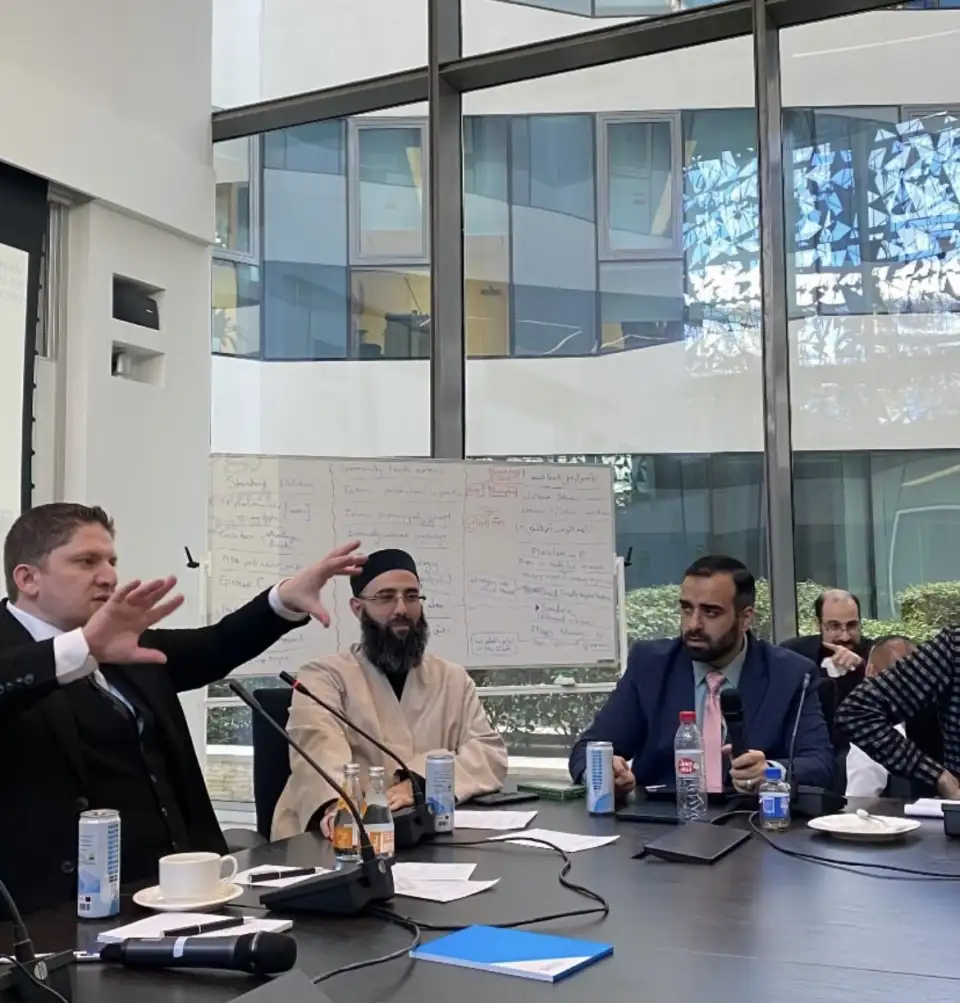
AR-RAYYAN, QATAR – Today, in collaboration with the Hamad Bin Khalifa University College of Islamic Studies (HBKU CIS), International Association of Islamic Psychology (IAIP), and International Students of Islamic psychology (ISIP), the Khalil Center concluded its very first Islamic Psychology Symposium. With over 100 papers submitted, the global seminar was an opportunity for professionals in the field to highlight their research that contributed to the advancement of Islamic psychology and discuss amongst visionaries of the field what the future of Islamic psychology entails.
“I am thoroughly excited to be a part of the first symposium in a series of upcoming academic activities on Islamic Psychology at Hamad bin Khalifa University,” said Dr.Hooman Keshavarzi, Khalil Center Executive Director and HBKU CIS Program Director. “As an educator of Muslim mental health professionals and researcher in the field, I am honored to be able to benefit from the contributions of the scholars who made up this symposium.”
Attendees from all parts of the world filled the seats of the university's auditorium, eager to further the understanding of the role and scope of Islamic psychology practitioners and re-defining the core skills that training programs should aim to nurture. Additionally, within the duration of the two day symposium, participants had the opportunity to discuss issues related to conceptualization of the field, professional development, clinical supervision, curriculum development, ethics, and career opportunities for graduate students.
Given the interest in Islamic psychology progressing over the years, the symposium was a much needed success. With our Muslim practitioners becoming fatigued of the western interpretation of the field, numerous Islamic psychology programs have begun populating, and the symposium offered practicing and aspiring mental health professionals the platform and opportunity to expand their knowledge and interpretations on Islamic psychology.
About Khalil Center
Khalil Center is a psychological and spiritual community wellness center advancing the professional practice of psychology rooted in Islamic principles. An initiative designed to address the widespread prevalence of social, psychological, familial, relational and spiritual issues of Muslim communities. Khalil Center’s approach emphasizes: psychological reconstruction, behavioral reformation and spiritual elevation. Khalil Center utilizes faith-based approaches rooted in Islamic theological concepts while integrating the science of psychology towards addressing psychological, spiritual and communal health.